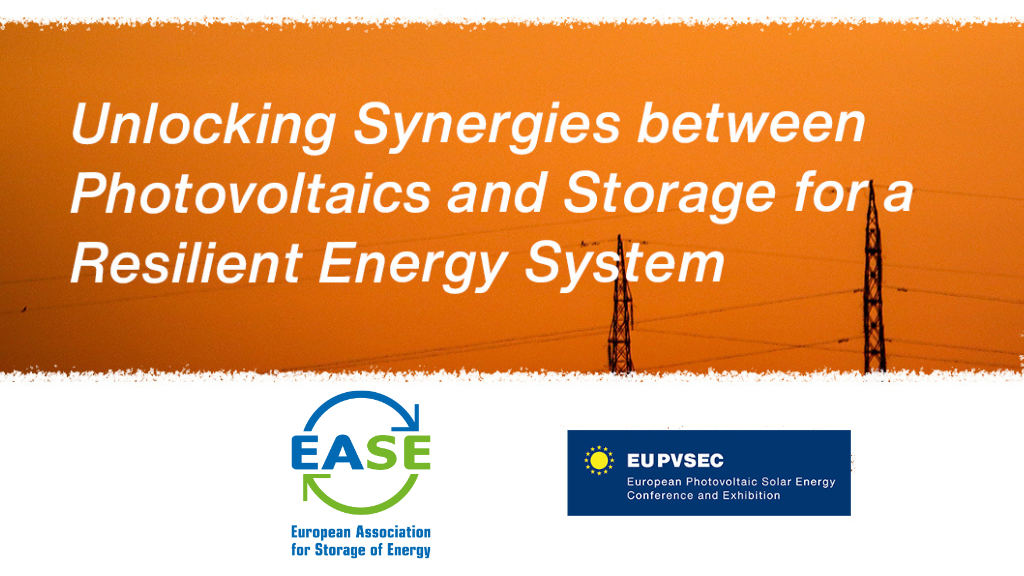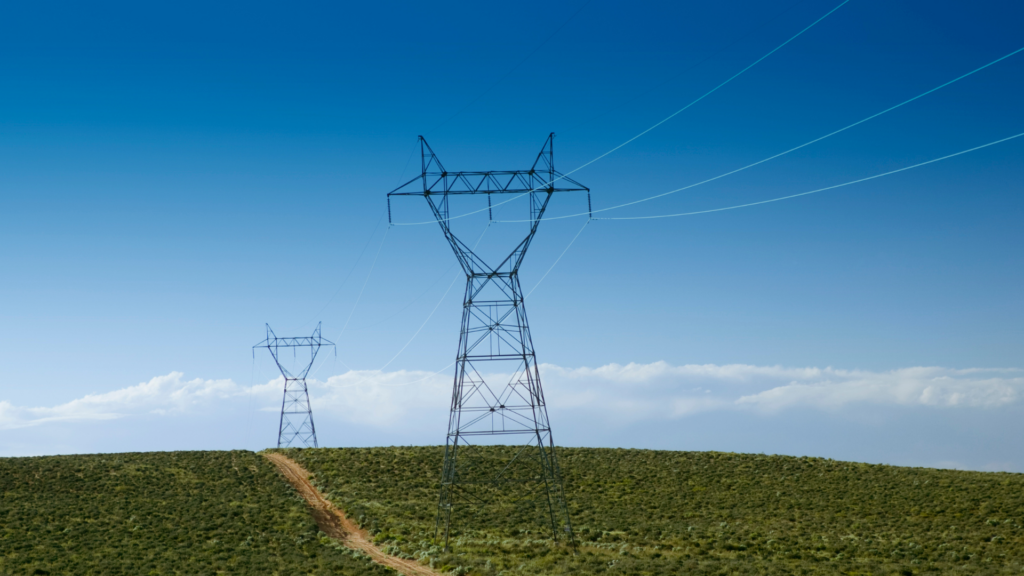22.05.2023 / News
Hydropower: The Key to Europe's Energy Transition?
ETIP HYDROPOWER successfully organised the first edition the annual event “Brussels Hydropower Day” on 25th April 2023 under the title: “The added value of the hydropower sector as a catalyst and enabler in the clean and safe energy transition under the energy crisis”. Both the speakers and more than 120 participants contributed to the interesting and fruitful discussions, both online and in-person, in the exciting and informative event that brought together all stakeholder groups in the sector to discuss opportunities and barriers in the deployment of hydropower.
As Europe faces the challenges of the energy transition, the energy crisis, and changing market and regulatory conditions, the opportunities and barriers facing hydropower deployment are more complex than ever. Many hydropower systems could still be extended and upgraded by the modernisation of equipment or increasing their storage capacity. Furthermore 17 countries in Europe have so far tapped less than 50% of their economically feasible potential, if the market conditions would ask for it. However, to unlock the remaining potential is extremely challenging due to, among others, socioeconomical and environmental barriers, that can only be overcome with widely acceptable sustainable solutions.
OBJECTIVES OF HYDROPOWER DAY 2023
The “Brussels Hydropower Day” was created following the needs of the hydropower sector to bring together a wide range of stakeholder groups and policymakers at the European level. The aim was to provide a space for presentation of the key services provided by hydropower to the grid and electricity system and for discussion and collaboration on the most pressing issues that affect the deployment of hydropower in Europe and beyond.
Through a series of engaging presentations and panel discussions, participants at the “Brussels Hydropower Day 2023” gained new insights into best practice for hydropower deployment, including examples of market design, flexibility, and biodiversity requirements. They also had the opportunity to participate in the dialogue about cooperation with other energy platforms within the SET Plan (European Strategic Energy Technology Plan) on approaches to ensure energy system integration and a flexible safe energy supply.
FROM THEORY TO PRACTICE: OUTCOMES OF THE EVENT
The Hydropower Day was opened by Ms Hélène Chraye, Deputy Director for the Clean Planet initiative at the European Commission Directorate General for Research and Innovation (DG RTD) and Mr. Anton Schleiss, professor emeritus at the Ecole Polytechnique fédérale de Lausanne (EPFL) and scientific coordinator of ETIP HYDROPOWER. They promoted the important and often ignored role which hydropower has to play in the current global energy landscape and the potential that it still has for helping to achieve the future net-zero carbon target set by the European Union. Hydropower has to export the European values, sustainability and circularity and use them as a competitive advantage. There is a need to support European hydropower exportation as well as to involve European citizens through the recognition of the benefits of hydropower.
This opening was followed by two keynote speeches, which were then followed by three thematic blocks, each with an open discussion panel about the following topics:
-
- The added value of hydropower and energy storage in the energy transition and within the energy crisis
- Best practice examples to tackle economic, environmental and societal challenges with hydropower
- Synergies and collaboration with European Technology Industry Platforms (ETIPs), European Energy Research Alliance (EERA) and other sector organisations for the integrated use of renewables in view of safe electricity supply
Ms Mathilde Lallemand, Policy Officer from the Directorate General for Energy of the European Commission (DG ENER), was the first keynote speaker of the day and told us about the Reform of the Electricity Market Design. She presented three major tools: Power Purchase Agreements (PPAs), Two-way Contracts for Differences (CfDs) for public support for new investments, and forward markets. She concluded that the role of hydropower in providing such flexibility will be key. The second keynote speaker, Ms Ana Paula Moreira, Head of European Affairs of the national energy company in Portugal (EDP), presented the audience with good practice examples from Portugal, such as the scheme at Alqueva, a multipurpose large reservoir that integrates both solar and hydropower sources.
The first session included presentations from Mr Ghislain Weisrock from France Hydro Electricité; Ms Sera Lazaridou, from Hydroexigiantiki Consulting Engineers, Greece and Mr Peter Lustenberger, from AXPO Power, Switzerland. Ghislain Weisrock presented a study on the French power system which estimates that the flexibility needs in 2050 will be 7 or 8 times the current provisions. But the lack of profitability for the use of flexible technology explains the main threat to achieving these requirements. The new market model has to find an appropriate framework in order to invest in flexibility and to maintain existing services. Ms Sera Lazaridou showed that the total hydropower production in Greece focuses on multipurpose use and she highlighted its important role in the event of extraordinary system energy demand. She also outlined that pumped-storage projects are on the rise in Greece. The main objectives & targets of the New National Energy & Climate Plan (ENCP), based on draft announcements, promotes until 20230 additional pumped-storage schemes with a capacity of 2.5 GW and also an increase of the increased hydropower capacity of 4GW. Mr Peter Lustenberger shared the Swiss experience of roundtable negotiation to achieve a common understanding for reaching zero emissions target, ensuring the security of the energy supply and preserving biodiversity in Switzerland. Through this process, with agreement on the 2 TWh additional winter energy goal until 2040, 15 hydropower storage projects were recommended for development, to support and ensure the energy strategy 2050.
The second session showed best practice to tackle the three main current challenges: climate change, biodiversity change and the energy crisis. The economic, challenge was covered by Ms Maryse François, from MFX Consulting; the societal by Mr Eddie Rich from IHA, and the environmental, by Mr Jeffrey Tuhtan, Professor at the Tallin University of Technology.
By showing examples of China, Australia, Israel and Switzerland Maryse Francois claimed that pumped-storage plants are mandatory to support intermittent renewable energy and to achieve the net zero carbon emission target, and for this reason, a long-term vision of tariff and policy is needed. This includes simplifying the licensing process, reducing permitting processing time, rewarding services provided, defining long-term policy/contract and valorising multi-purpose water use. She mentioned IEA: “Hydropower is the forgotten giant of clean electricity, and it needs to be put squarely back on the energy and climate agenda if countries are serious about meeting their net zero goals”.
Professor Jeffrey Tuhtan presented the impressive results of a new research field, etho-hydraulics, which uses digital monitoring technologies for monitoring fish behaviour at hydropower plants, and which could provide the necessary reporting data for the EU taxonomy’s Technical Screening Criteria (TSC) and Do No Significant Harm Criteria (DNSH) and could also offer the opportunity to quantify the effects of climate change on fish migration.
Eddie Rich stated that irresponsible hydropower projects are no longer acceptable. The Hydropower Sustainability Standard has been developed by a multi-stakeholder council including governments, hydropower companies, environmental and social NGOs and financial institutions. This standard will help to demonstrate sustainability, build trust and reputation, manage risk with independent audits, align with industry and investors, and access climate bonds.
The third session focused on collaboration with other energy associations and platforms. The work done under ASPIRE collaboration, whose scope is to promote predictable and reliable renewable technologies, was introduced by a representative of Ocean Europe, Mr Donagh Cagney; Ms Liv Randi Hultgreen, explained how EERA and ETIP HYDROPOWER align and are bound to collaborate. The future participation of ETIP HYDROPOWER in the revision of the SET Plan and in the ETIP Forum was introduced and commented on by Mr Thomas Schleker representing EC Directorate-General for Research and Innovation. Finally, Mr Jean-Louis Drommi closed the third session by exposing a few takeaways of the project XFLEX HYDRO. He confirmed that the hybridization of hydro and small size battery can save up to 90% wear & tear of turbine mechanisms.
Finally, Dr Mark Morris, from SAMUI France, closed the presentations by introducing the audience to the ETIP HYDROPOWER project and the next steps that will be taken to participate in the transition to a future association. He identified a key role of the ETIP HYDROPOWER project being to help unify the hydropower sector, presenting a single voice on key issues, and thus enhancing and complementing the role of existing associations. Finally, he invited the audience to participate in the Terms of Reference Survey and in consultation on the priorities of the future self-sustaining and unifying hydropower association through the online consultation platform (https://hydro-consultation.eu/ ). The responsible EC officer for the ETIP HYDROPOWER project, Mr Sébastien Mortier, highlighted its importance in the ongoing energy transition framework.
All the sessions included a panel discussion which further deepened, completed and enhanced the added value of the hydropower sector as a catalyst and enabler in the clean and safe energy transition under the energy crisis. The panel involved all speakers, and in Session 2 also Mr. Diar Isid, EC Policy Officer from Directorate-General for Environment; Mr Olivier Tricca, Power Engineer from European Investment Bank and Mr Benjamin Graff, Open Innovation Manager from Companie Nationale de Rhône (CNR), France.




